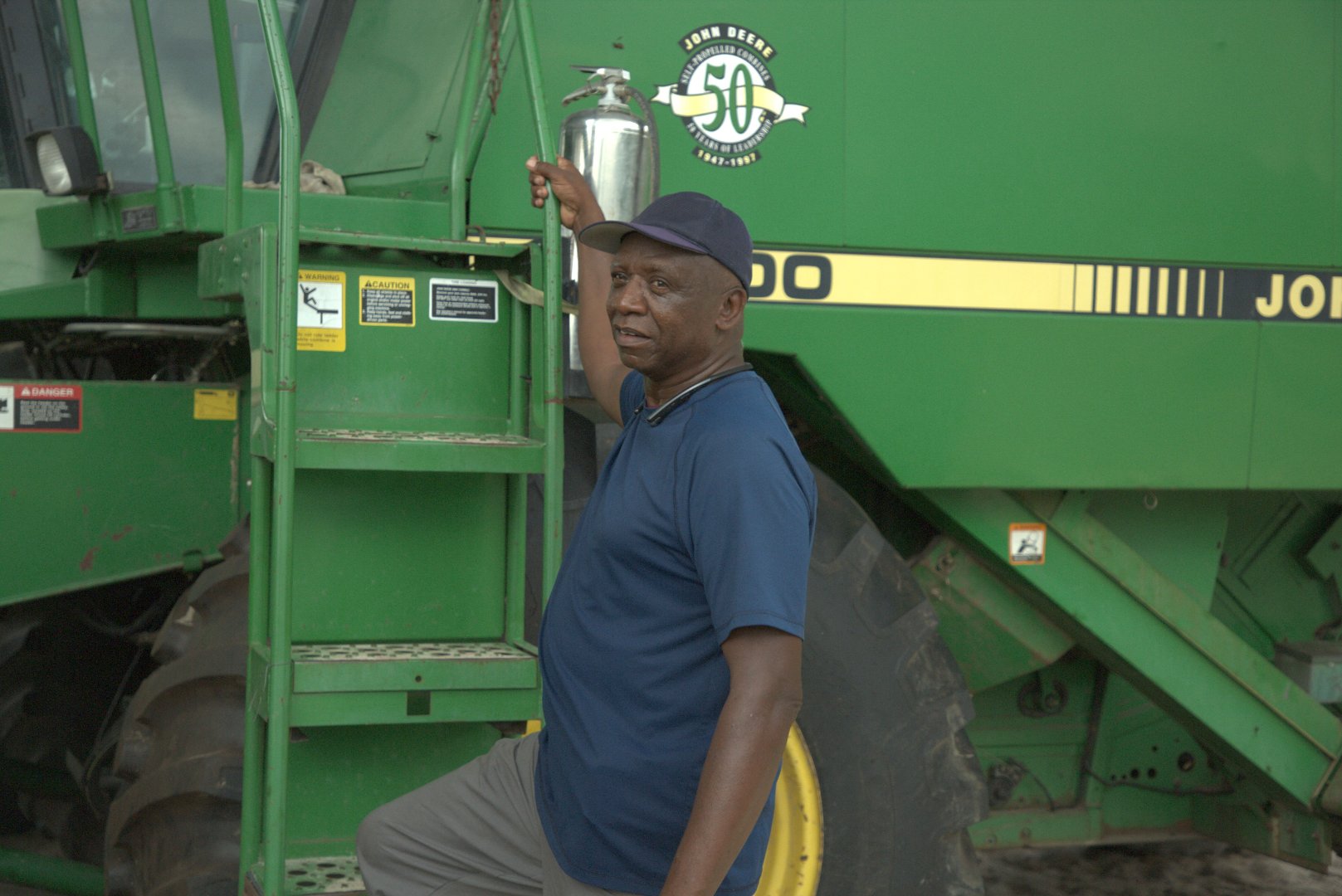Sam Baker is not your average Black farmer.
In 2012, he retired from the Farm Service Agency after serving as a loan officer for 32 years. Now operating as a full-time farmer and managing Sam Baker Farms LLC, he aims to change the status quo of how Black farmers are perceived.
“Most of the time when people think about Black farmers, they tend to think of us as being smaller and not having the latest equipment,” Baker said.
Striving to be efficient, Baker learned from successful farmers as much as he could while employed by FSA. He credits those experiences for where he is today.
When he first started farming full-time, Baker said he had about 200 acres and minimal equipment. In 2022, the retiree farms approximately 2,700 acres of corn, cotton, peanuts, a cover crop and timber with two of his brothers. He also owns the latest equipment, including a grain combine, peanut combine, peanut plow and several tractors.
Some of the land Baker farms he inherited from his father and grandfather, but the majority of the land came through other means.
“The Lord was good to me,” Baker said. “The majority of the land we farm came from someone asking me if I was interested in being their banker.”
He also credits his father’s reputation to his success.
Seeing both sides of the business as a loan officer and now as a full-time farmer, Baker understand the hurdles that small farmers face.
“There was some hesitancy among small farmers, which was rooted in historical distrust with the Farm Service Agency,” Baker said.
In addition, he also mentioned weather, adequate finances, and relationships with suppliers, lenders and landlords as challenges that are also prevalent among farmers. Baker said the biggest challenge he saw among small Black farmers was their ability to gain confidence in their abilities.
To help, while working for FSA he said he aimed to educate small farmers about doing their research.
“Know what you’re asking for, know your crop,” Baker said. “Knowledge is the main way to get over the hurdles.”
He also suggests that small farmers develop detailed written plans.
“Be committed and be convinced of it, and be able to sell it to someone else, showing that you can do what you set out to do,” he said.
Although Baker has never pursued a direct loan from the FSA, he has participated in several programs offered by the agency, including the Coronavirus Food Assistance Program, the Quality Loss Adjustment Program, the Agriculture Risk Coverage Program, the Price Loss Coverage Program, the Marketing Facilitation Program, the Prevented Planting Assistance, the Cotton Ginning Cost Share and the Emergency Conservation Program.
From these programs, Baker has been able to maintain and grow his farming operation into one of the biggest in his area.
“These programs provided additional income and enabled me to be able to meet my financial obligations,” Baker said. “Without them I would not have been able to meet my expenses for the year.”
The 1979 Fort Valley State University alumnus said he hopes his operation inspires small farmers to develop confidence.
“I hope I’ve been a positive role model showing that if a person wants to farm, they can do it,” Baker said.

